Quick exercises and aids to help you fall asleep instantly
We look at more details on why you may not be falling asleep quickly and how long it should actually take you to fall asleep later in this article, but let's first get to the nitty-gritty of why you're here.
Many tips and tricks on falling asleep fast require you to do a bit of leg work. 😅
That’s because many of the methods that help you fall asleep more quickly in the long term will also require advance planning or long-term lifestyle changes.
That's all good and well, and we'll actually look at some of these changes in more detail further down.
But you’re lying in bed, struggling to sleep now - so what can you do?
Luckily, there are a few exercises you can do to send your body into a deep state of relaxation, which can trigger sleep more quickly than if you were to continue lying in bed and worrying about not sleeping.
So here are our top exercises to help you fall asleep instantly.
Try the 4-7-8 breathing method
The 4-7-8 breathing technique has gained popularity as a natural way to fall asleep quickly.
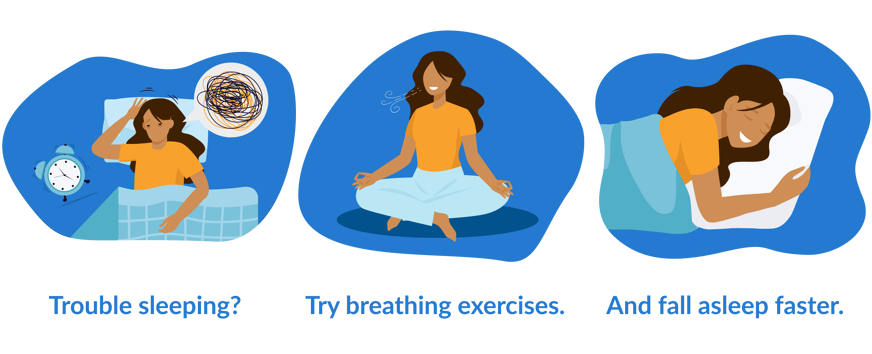
It was developed by Dr Andrew Weil [2], a Harvard-educated physician, who claims the technique can help people fall asleep in under a minute by reducing anxiety and promoting relaxation.
The 4-7-8 method is based on the principles of pranayama [3], an ancient Indian practice of controlling the breath.
This reduces stress and, in turn, can help induce sleep.
Here’s how to perform the 4-7-8 method:
- Sit or lie down in a comfortable position. We’d recommend doing the exercise in bed.
- Take a deep breath through your nose, counting to 4 as you inhale.
- Hold your breath for a count of 7.
- Exhale through your mouth for a count of 8, making a whooshing sound as you breathe out.
- Repeat the cycle three more times for a total of four breaths.
As you advance, you can increase the number of repetitions.
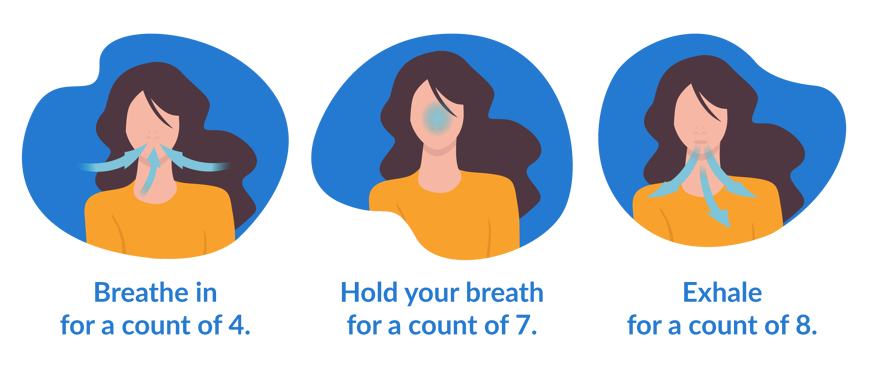
The 4-7-8 breathing method is a simple and easy-to-learn technique that can be used at any time, making it a useful tool for anyone looking to improve their sleep quality. 🧘♀️
Fall asleep in under 2 minutes with the military method
The military method for falling asleep is a well-known technique for inducing sleep quickly.
While often attributed to the US Navy SEALs, the technique itself comes from a 1981 book titled Relax and Win: Championship Performance.
The technique has been designed to induce sleep within two minutes, which is useful for soldiers, pilots, and astronauts, who often need to rest and recover under difficult conditions. 🪖
The military method involves a set of steps that are easy to follow and can be done anywhere.
How to sleep within two minutes:
- Relax the muscles in your face, including your tongue, jaw, and the muscles around your eyes.
- Drop your shoulders as low as they can go, and then relax your upper and lower arm on one side, followed by the other.
- Breathe out, and relax your chest and then your legs, starting from your thighs and working down to your calves.
- Clear your mind for 10 seconds by imagining a relaxing scene, such as a peaceful beach or a forest, and try to focus on the details of this scene.
- If you still can’t fall asleep, repeat the above steps, but add counting backwards from 100 in threes or tens.
The military method works by relaxing the body and mind through a series of progressive muscle relaxation exercises.
By focusing on relaxing each part of the body in turn, the mind is able to switch off from any stressful thoughts or distractions, and the body can begin to relax.
The visualisation element also helps calm the mind by giving it something to focus on other than life's stresses and to-do lists.
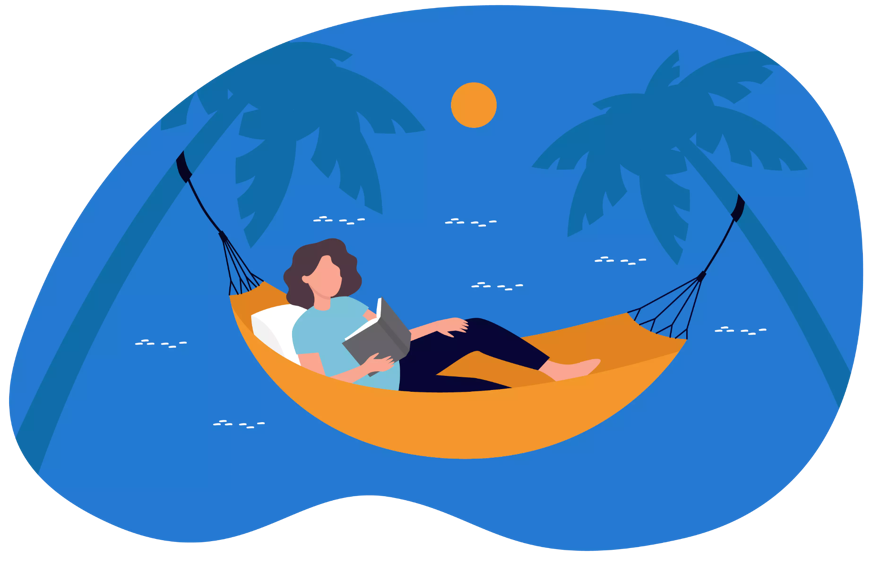
Finally, the counting exercise gives the mind something to focus on and can be used to distract from any racing thoughts or worries that may be keeping you awake.
You may require a few weeks of practice before the military method truly becomes effective. 🗓️
That’s because the body needs some time to learn to associate these steps with sleep but, once learned, the technique can help you fall asleep within 2 minutes.
Yoga nidra as a sleep aid
Yoga nidra, also known as yogic sleep, is a guided sleep meditation focusing on deep relaxation and conscious awareness. 🧘
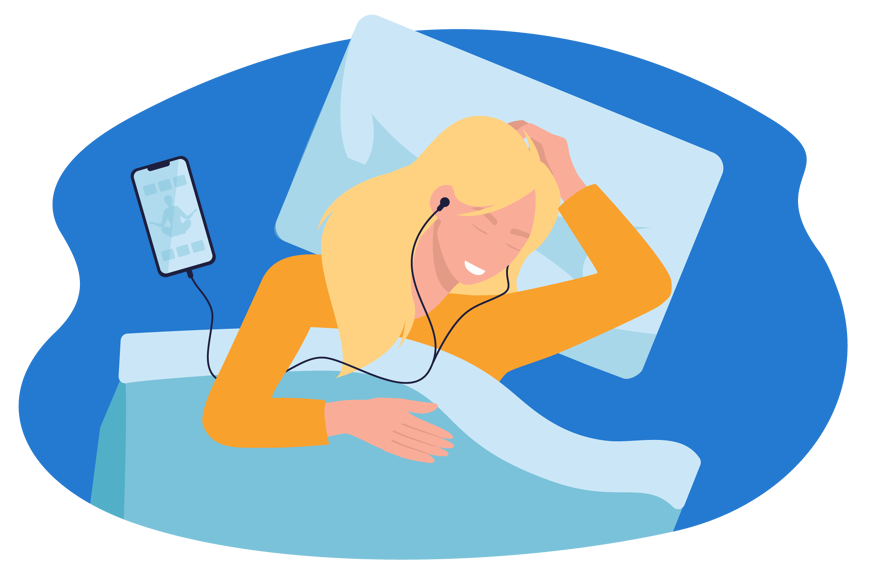
To use yoga nidra to help you sleep, practise in bed while lying down comfortably.
These are the steps to follow:
- Take a few deep breaths and consciously relax the body, starting with the feet and working up towards the head.
- Focus on the breath, allowing the inhale and exhale to become deeper and slower.
- Begin to visualise a peaceful and calming scene, such as a beach or a forest, and allow the mind to rest in this space.
- Continue to focus on the breath and the visualisation, allowing the body to become more and more relaxed.
- If the mind wanders, gently bring it back to the breath and visualisation.
- Practise for at least 10 - 15 minutes or as long as it takes to feel relaxed and calm.
Some practices of yoga nidra rely on affirmations and keeping yourself in a more wakeful state. 🤔
But, to induce sleep, it’s often best to let go of too much mind work and just allow your body to relax.
How to fall asleep with paradoxical intentions
If you tell yourself to stay awake rather than trying to force yourself to sleep, you may actually trick your body into falling asleep faster.
This technique is simple - focus on staying awake.
And then see how quickly you can actually fall asleep.
Melatonin and sleeping pills
Relying on supplements and sleep medicine should be an absolute last resort, but these can be effective in emergencies. 💊
Melatonin is a hormone that helps regulate the sleep cycle and is often used as a natural sleep aid.
Taking melatonin can help signal to the body that it’s time for sleep, improving sleep quality and reducing sleep disturbances.
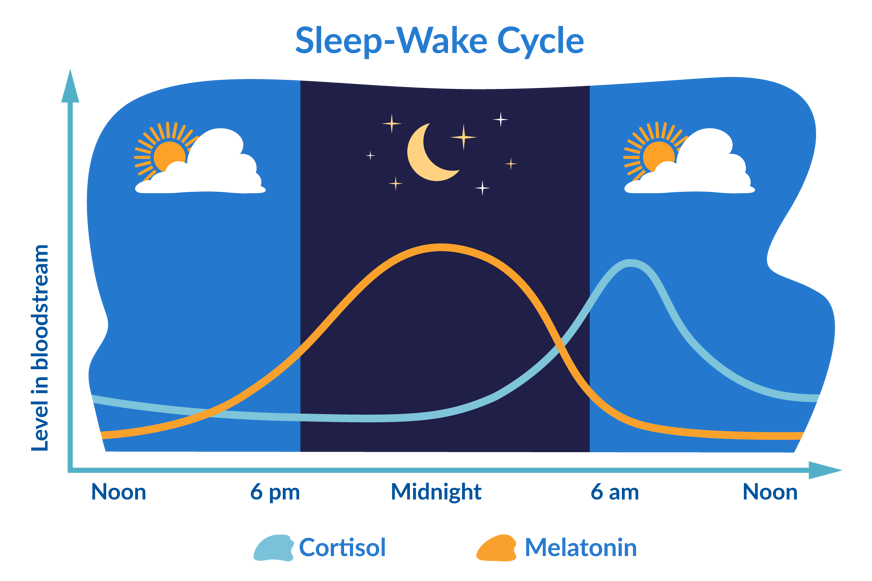
Sleeping pills, on the other hand, are prescription medications that are used to promote sleepiness and reduce the time it takes to fall asleep.
While sleeping pills can be effective for promoting sleep, they should only be taken under the guidance of a healthcare professional, as they can have side effects and be habit-forming. 👩⚕️
Supplements and pills should never be taken without speaking to your doctor first, and they should not be relied upon as the sole solution for sleep problems.
Fall asleep quickly with sleep aids, like the Dodow device
The Dodow sleep aid is a small, battery-operated device that aims to help people fall asleep faster. 🔋

The device uses a rhythmic light that gradually expands and contracts.
Users focus on the light to synchronise their breathing, which slows the nervous system, reducing stress and anxiety and promoting relaxation, making it easier to fall asleep.
It’s compact, easy to use, and a great non-invasive, drug-free solution for improving sleep quality.
Fall asleep quickly by establishing a good pre-bedtime routine
The above quick fixes are ideal to help you fall asleep quickly when in bed, but there are also a number of things you can do during your pre-bedtime routine to help you sleep fast.
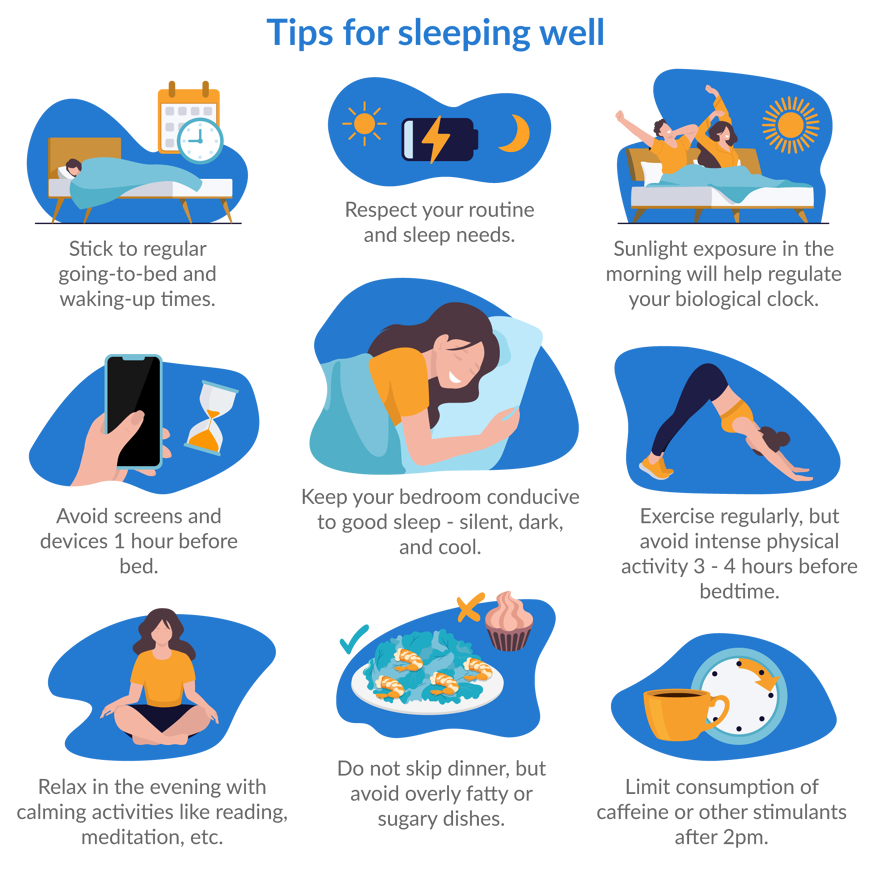
These include:
- Avoiding caffeine and alcohol pre-bedtime
- Not eating a heavy meal before bedtime
- Drinking milk with honey or enjoying a sleep tea
- Avoiding blue light and electronic devices
- Taking a warm bath or taking an ice bath
- Establishing relaxing routines
- Setting the right sleep temperature and getting fresh air
- Creating a dark and quiet atmosphere
Let’s look at some of these sleep tips in more detail. 👀
Avoiding caffeine and alcohol pre-bedtime
Avoiding alcohol and caffeine before bed is important for promoting healthy sleep habits. ☕️
Both substances can interfere with sleep quality, and make it harder to fall asleep and stay asleep.
Caffeine is a stimulant that can increase alertness and interfere with the body’s natural sleep-wake cycle.
Consuming caffeine before bed can lead to insomnia, reducing the amount of time spent in deep sleep and leading to fatigue and irritability the next day.
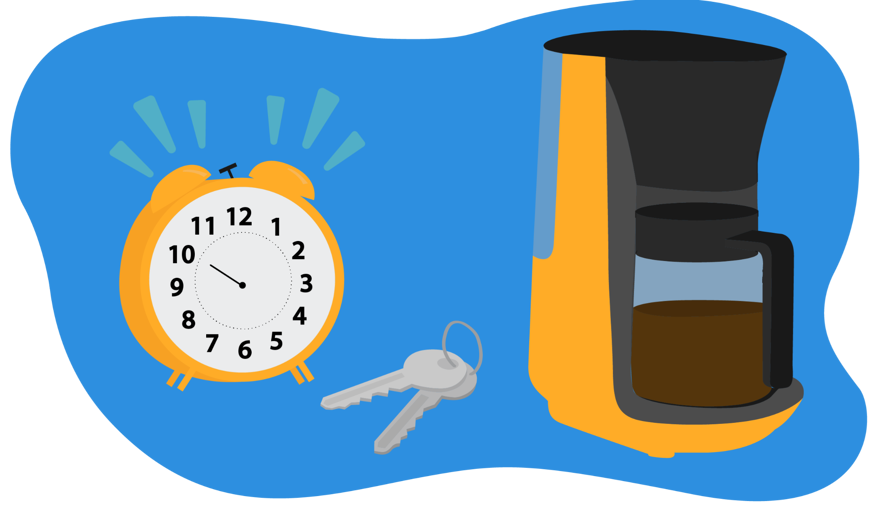
Caffeine isn’t only found in coffee - you’ll also find it in chocolate, sodas, and energy drinks. 🍫
Individual responses to caffeine may vary, but most experts agree that you shouldn’t have any within 6 hours of your bedtime.
In contrast to caffeine, alcohol is a depressant that can initially make you sleepy but can lead to fragmented sleep, headaches, and night sweats.
Studies actually show that men with a daily alcohol consumption exceeding two drinks experience a 39.2% decrease in sleep quality [4]. 🍷
Decreasing caffeine and alcohol consumption, especially in your pre-bedtime hours, can greatly affect your sleep.
Not eating a heavy meal before bedtime
Eating a heavy meal before bed can negatively affect sleep quality and make it harder to fall asleep, primarily because of three reasons:
- Digestion requires energy and can stimulate the body, making it harder to relax and enter a state of sleepiness.
- Eating a heavy meal before bed can lead to acid reflux, which can cause discomfort and interfere with sleep quality.
- It can also cause blood sugar fluctuations, affecting sleep quality. When blood sugar levels are high, the body produces more insulin, which can lead to a drop in blood sugar levels later on, causing wakefulness and restlessness.
Sticking to lighter, more easily digestible foods before bedtime is best. 🥗
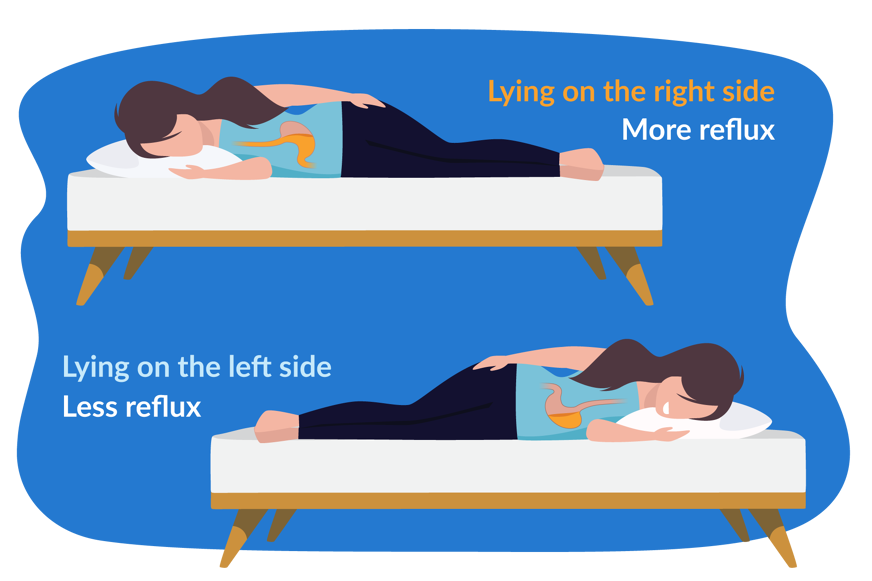
Also, eating at least two hours before bed can help promote digestion and allow the body to relax before sleep.
Drinking milk with honey or enjoying a sleep tea
Drinking milk with honey or using a sleep tea can be a helpful way to promote relaxation and improve sleep quality.
Milk contains tryptophan, an amino acid that helps the body produce serotonin and melatonin, hormones that promote relaxation and sleepiness.
Honey can also help to promote relaxation and reduce stress, making it easier to fall asleep. 🍯
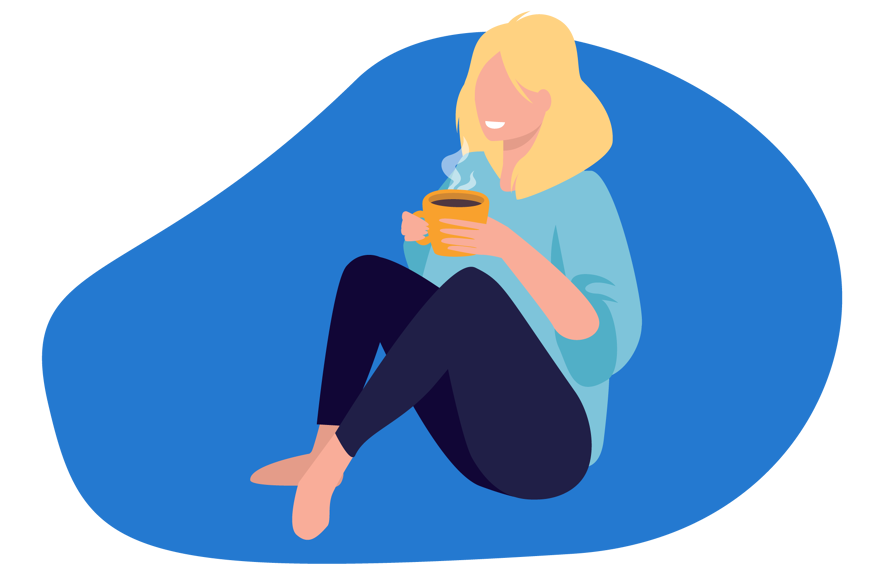
Similarly, sleeping teas such as chamomile or valerian root tea contain natural compounds that can be helpful for promoting relaxation and reducing stress and anxiety.
Avoiding blue light and electronic devices
Blue light emitted by electronic devices such as smartphones, laptops, and tablets has been shown to interfere with sleep.
This is because blue light suppresses the production of melatonin, a hormone that regulates sleep-wake cycles, and disrupts circadian rhythms.
In turn, this makes it harder to fall asleep and stay asleep, which can lead to fatigue, mood swings, and other health problems.
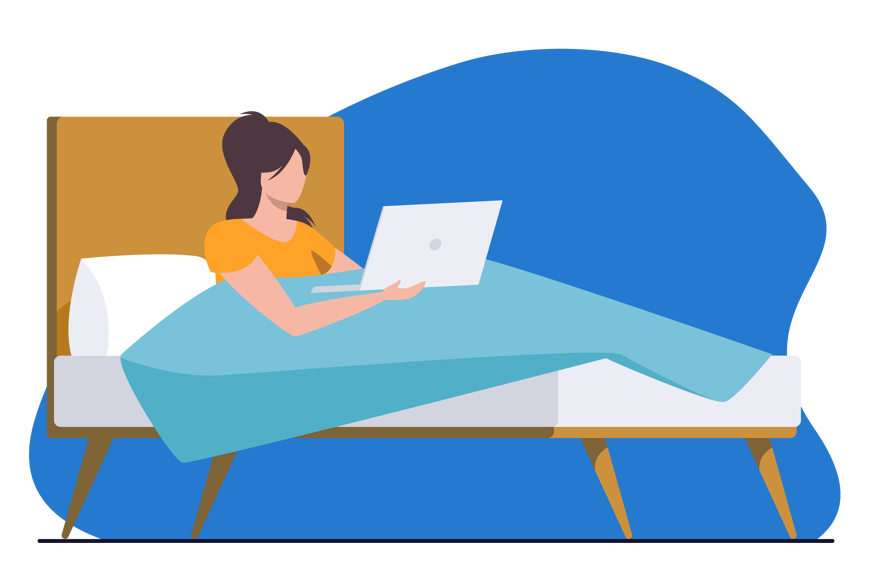
For those who need to use electronic devices before bed, blue light glasses or filters, which can be installed on most devices, can be effective.
These glasses and filters reduce the amount of blue light that enters the eyes and suppress the effects thereof on the body. 💙
But, avoiding electronic devices at least an hour before bedtime is still recommended to allow the body to prepare for sleep.
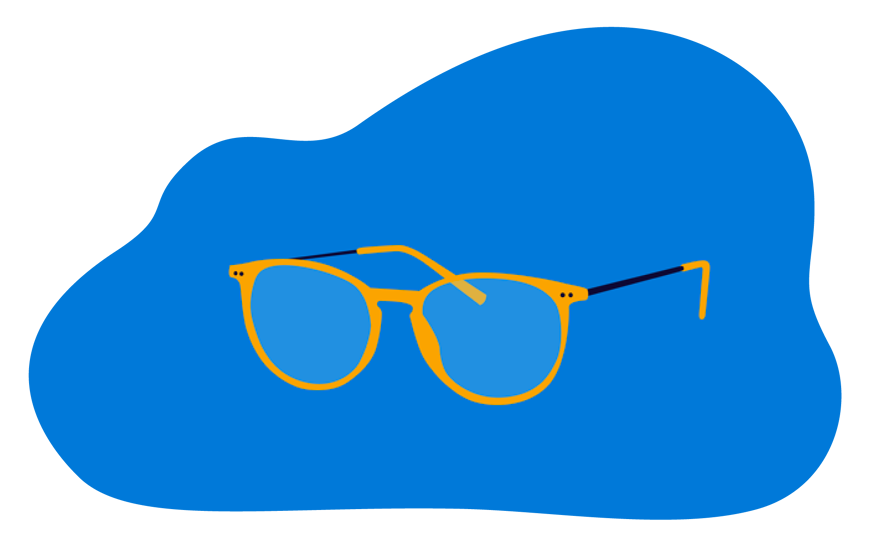
This is because, in addition to the effects of blue light, electronic devices can lead to cognitive stimulation and stress, which can make it harder to fall asleep.
Scrolling social media, emails, and news alerts can be particularly stimulating and can cause the brain to remain active.
This makes it more difficult to switch off and relax, leading to sleep disturbances and affecting overall sleep quality.
Taking a warm bath or taking an ice bath
This may seem like an oxymoron, but both a warm shower/bath and an ice bath can help promote sleep.
Warm water increases blood flow, reduces muscle tension, and promotes relaxation, which can help to reduce stress and anxiety and prepare the body for sleep.
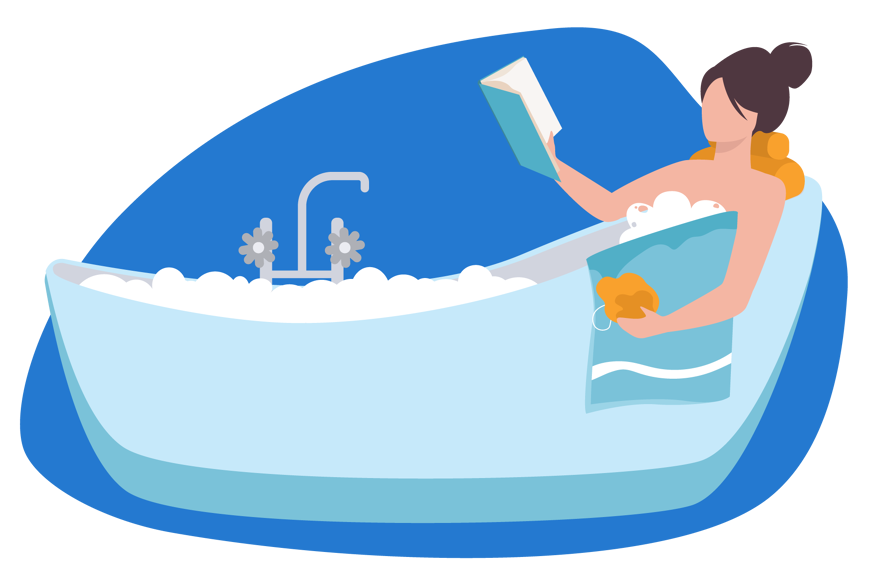
Additionally, warm water can also help to raise body temperature, leading to a natural cooling process when you get out of the bath. 🌡️
This drop in temperature can help promote drowsiness, making it easier to fall asleep.
Ice baths may seem counterintuitive for promoting sleep, but they’re believed to promote the release of endorphins, reduce pain and inflammation, and promote circulation, all of which can reduce muscle tension and promote relaxation. 🧊
Furthermore, while the body is exposed to cold temperatures, blood vessels constrict, which reduces blood flow and lowers the core body temperature.
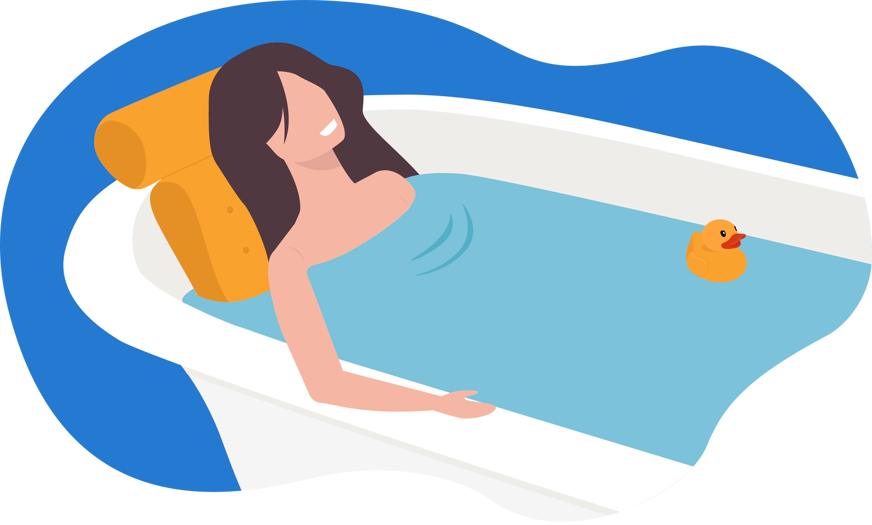
This can promote drowsiness and reduce wakefulness.
Establishing relaxing routines
You can incorporate several wellness activities into your pre-bedtime routine to promote relaxation and help you fall asleep more quickly.
Some examples include:
- Yoga or stretching: Gentle yoga or stretching, including only a few simple poses like Child’s Pose, can reduce muscle tension and promote relaxation.
- Meditation or deep breathing: These mindfulness techniques can help calm the mind and improve sleep quality.
- Reading or journalling: Reading fiction or writing in a journal can be helpful to unwind before bed.
- Listening to music: Calming music can help slow down the heart rate, reduce blood pressure, and promote relaxation.
Relaxing pre-bedtime routines help you decompress after a long day, but they also signal to the body that it’s time to prepare for sleep.

You can also rely on some aromatherapy to provide more of a sleep ambience.
Lavender-based pillow sprays or candles with calming essential oils can be particularly helpful.
This inclusive approach to relaxation can help you fall asleep more quickly.
Setting the right sleep temperature and getting fresh air
Choosing the right temperature for sleep is crucial for falling asleep quickly and staying asleep throughout the night.
The ideal temperature for sleep varies from person to person, but most find a temperature between 15℃ - 20℃ to be most comfortable.
The body naturally cools down during sleep, so sleeping in a cooler room can help promote sleepiness.
Conversely, sleeping in a room that's too warm can interfere with the body’s natural cooling process, making it harder to fall asleep and stay asleep.
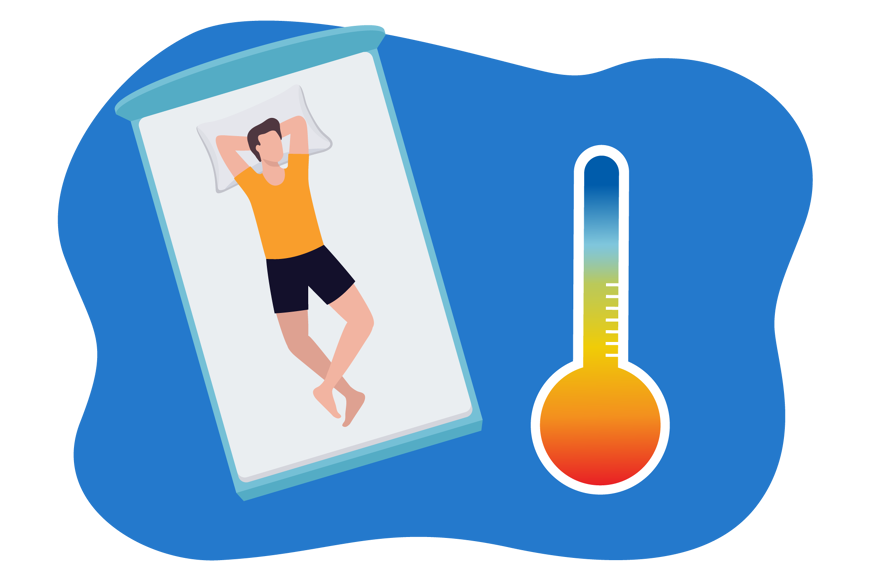
In addition to the temperature of the room, fresh air can also be important for promoting sleep. 💨
Fresh air helps circulate oxygen throughout the room, reducing the build-up of carbon dioxide.
Fresh air can also help regulate temperature and humidity levels for a more comfortable sleeping environment.
Creating a dark and quiet atmosphere
Finally, creating a dark and quiet atmosphere is essential for falling asleep quickly and staying asleep throughout the night.
Light and noise can interfere with the body’s natural sleep-wake cycle and make it harder to fall asleep.
Melatonin is most effectively produced in a dark environment making darkness an important sleep requirement.
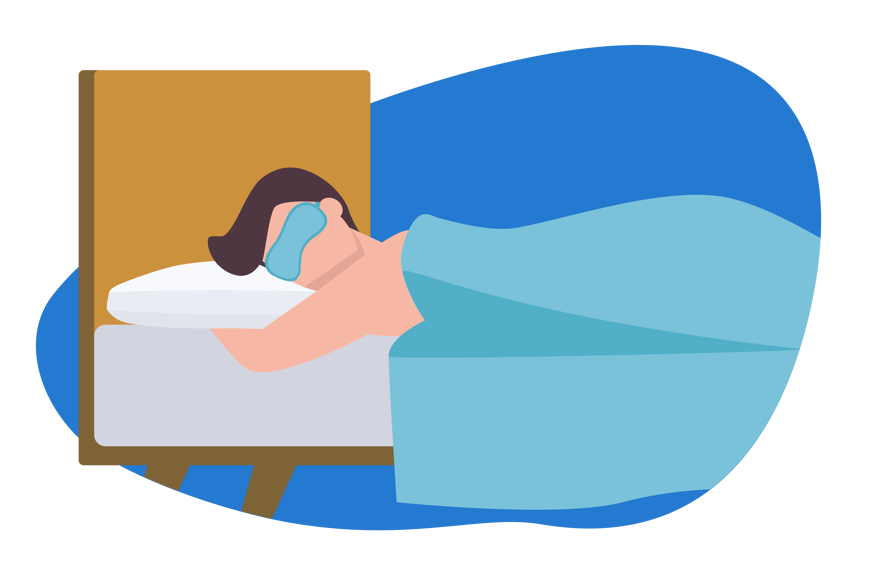
In contrast, noise can stimulate the body, making it harder to relax and enter a state of sleepiness. 🎧
White noise or relaxing music, though, can help promote sleep.
For those sensitive to light and noise, sleep eye masks and earplugs can be useful tools. 💤
Sleep masks or blackout curtains block out light, creating a dark sleeping environment, while earplugs can reduce external noise, promoting a quiet sleeping environment.
Our favourite sleep masks and earplugs:
Sleep hygiene to aid falling asleep quickly in the long term
So now you know what exercises to rely on as emergency measures when you can’t fall asleep, and you have some ideas of how to improve your pre-bedtime routine to help promote falling asleep more quickly.
But what about the long term?
In the long run, you’ll want to work on sleep hygiene more generally to build up better sleep habits that will serve you time and time again.
But here are a few key points that are worth repeating.
Stick to a sleep schedule
Sticking to a sleep schedule and having set going-to-bed and waking-up times is important for long-term sleep hygiene.
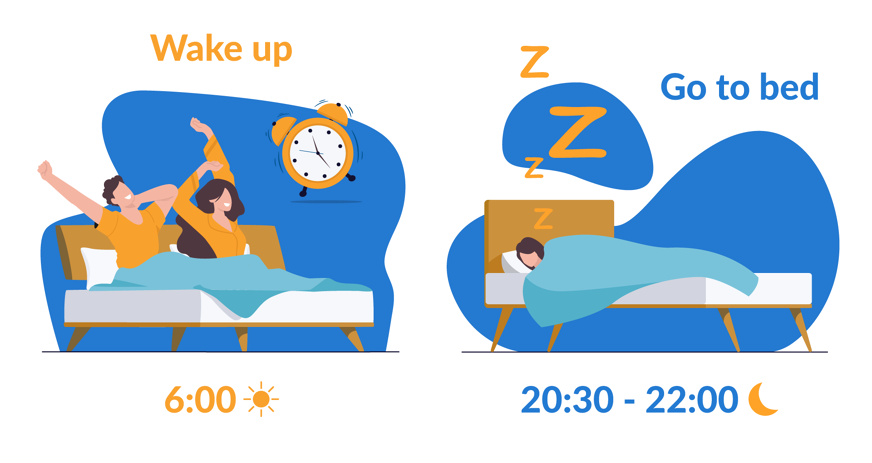
The body thrives on routine and consistency, and by establishing a regular sleep schedule, your body can learn to prepare for sleep at the same time each night.
Perfect your pre-bedtime routine
We’ve gone over tons of ideas above, but sticking to a good bedtime routine can be very helpful in promoting long-term sleep hygiene.
Stress and anxiety are detrimental to good sleep, so having a few key tricks to rely on is very beneficial.
Meditation and mindfulness practised before bed - and more regularly as part of a daily routine - can make a world of difference.
Increase daily sunlight exposure
Some studies [6] have shown that exposure to bright light can aid in regulating one’s circadian rhythm, the biological process by which the body determines when it’s time to sleep and when it’s time to stay awake.
Spending time outside during the day is recommended, particularly in the morning.
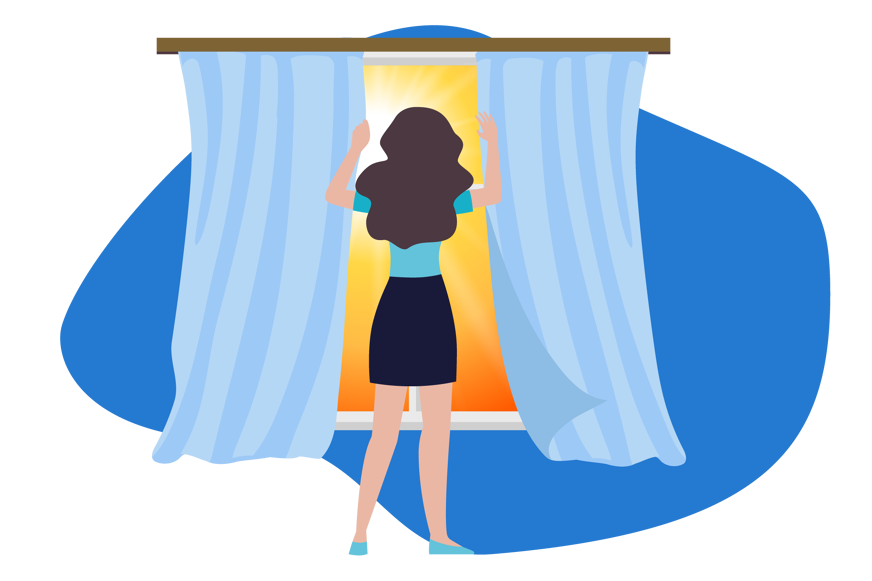
You can also head outside - or to your window - within the first thirty minutes of waking up and bathing your face in sunlight (remember to close your eyes).
This signals to the body that it’s time to be awake and promotes the production of cortisol, a hormone that promotes wakefulness.
Maintain a daily exercise routine
While some gentle movement pre-bed can help signal to your body that it’s time to fall asleep, regular exercise can help establish more healthy sleep habits in the long run. 🏃♂️
This is because exercise reduces stress and anxiety and promotes the release of endorphins, all of which affect sleep quality.
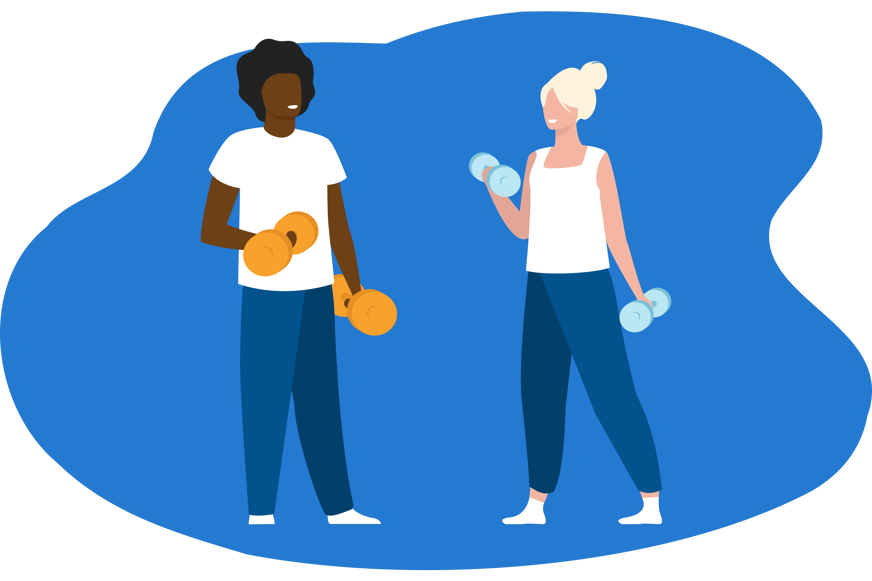
Aim for at least 30 minutes of moderate exercise per day, such as brisk walking, cycling, swimming, or yoga.
Avoid daytime napping
Daytime naps can be a lifesaver, but if you’re napping too long, too frequently, or too close to your actual bedtime, your ability to fall asleep at night may be negatively affected. 🛋️
If you’re struggling to fall asleep at night, re-looking at your napping habits may be worth it.
Invest in a good mattress and bedding
Having a good mattress and bedding is important for promoting healthy sleep habits and improving sleep quality.
A supportive and comfortable mattress can help reduce back pain, muscle tension, and a build-up of pressure points.
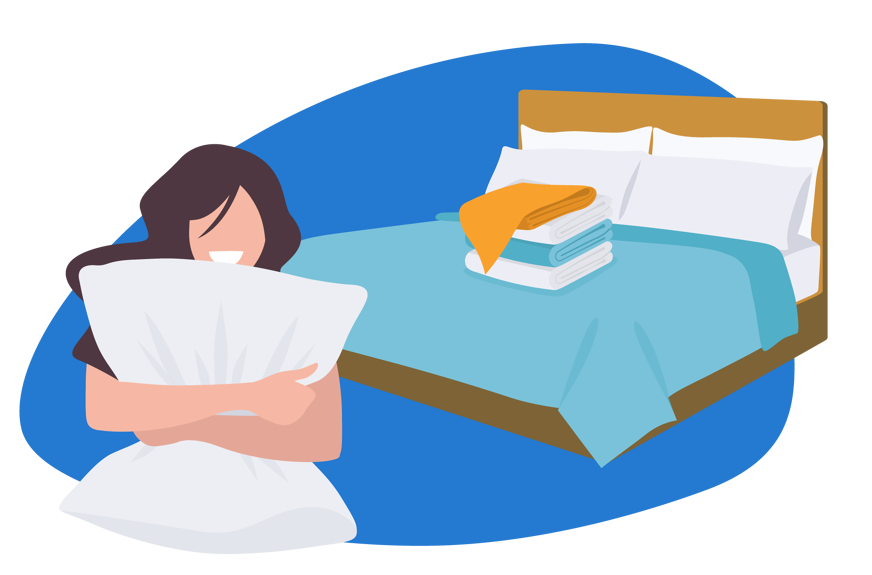
But good bedding also plays a part.
Soft, comfortable, and breathable sheets and blankets can promote relaxation and help regulate body temperature.
This reduces the risk of overheating or feeling too cold at night, which can interfere with sleep quality.
Check out some of our favourite mattresses and bedding products below.
Our favourite UK mattresses and bedding:
Possible reasons you can’t fall asleep fast
Now that we've looked at all the top tips for falling asleep fast, you may be wondering why you're even struggling to fall asleep in the first place.
There are actually a multitude of factors that could be contributing to sleeplessness, including biological, psychological, and learned causes.
Physical reasons you’re not falling asleep
While we may have an inherent sleep switch, this isn’t quite as simple as flicking a light switch on or off.
Different parts of the body, including the brain, autonomic nervous system, and skeletal muscles, play essential roles in sleep-inducing processes.
Sometimes, physical factors interfere. 🏃♂️

This could include conditions like Restless Legs Syndrome [7] (RLS) and sleep apnoea, as well as infections and hormonal imbalances.
Of course, even temporary injuries such as intercostal muscle strain or a ruptured eardrum can make falling asleep difficult.
Psychological reasons you’re not falling asleep
Stress, anxiety, and mental health issues are the most common reasons for insomnia.
You won’t be able to relax and drift off to sleep if your mind spins endless scenarios, keeping you up and worried all night.
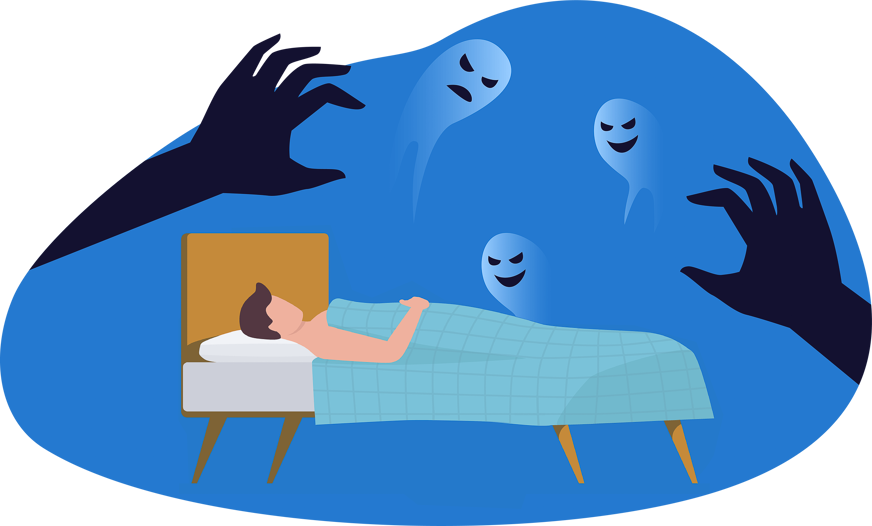
But it’s also a vicious cycle.
Stress and trauma may prevent you from falling asleep or sleeping well, but not sleeping also worsens mental health issues.
While we’ve listed some basic anti-stress methods above, it’s often tough to get out of this cycle on your own. 🧘♂️
If you’re struggling with stress, anxiety, or depression, it’s best to get professional help and work with a trustworthy physician or psychotherapist.
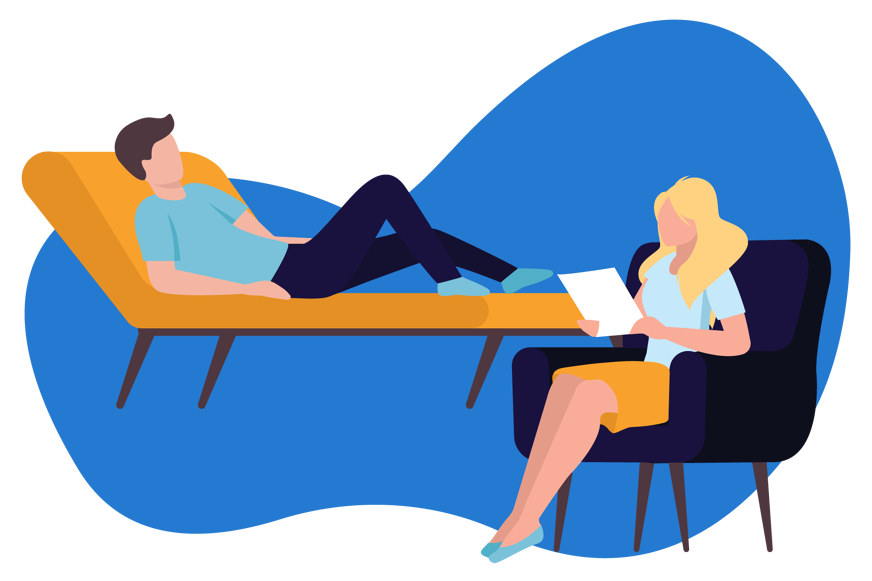
The NHS [8] has many resources to help British residents deal with common anxiety and mental health issues, and you may qualify for free counselling.
Learned reasons you’re not falling asleep
We can be our own worst enemies, and often our bad habits are the leading reason for sleep troubles.
Unhealthy bedtime routines, disruptive behaviours, or even sub-standard mattresses and sleep accessories can all have a negative effect on our ability to fall asleep quickly and get a good night’s sleep.
Luckily, these are also often the easiest to take control of - even if it may not seem like it. 😅
We've listed some basic measures to help you with these above, but you may have to turn to a CBT-i therapist or sleep coach if you're not finding the right way forward on your own.
How long does it usually take to fall asleep?
So how do you know if you're actually having trouble falling asleep or if you're quite normal?
Let's spent some time looking at what's "usual" before wrapping up this article.
We measure the time required to fall asleep in terms of sleep latency or sleep onset latency.
Most experts agree that it should take about 10 to 30 minutes [9] to fall asleep.
This includes time spent in bed but excludes shuteye latency [10], which refers to things like brushing your teeth, showering, or meditating before bed. 🛀
Interestingly, falling asleep too quickly isn’t ideal either, as it’s usually a sign of sleep deprivation and extreme exhaustion.
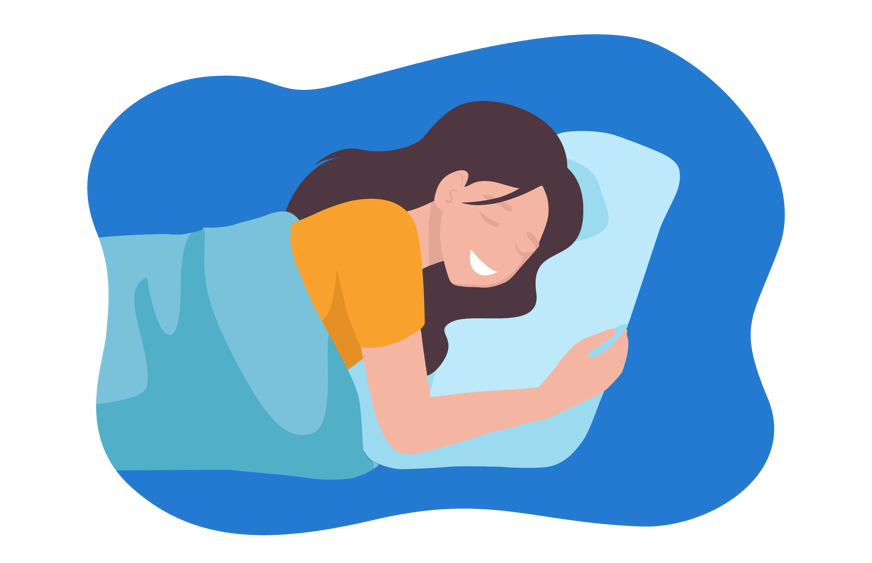
If it takes longer than half an hour to doze off, however, your sleep quality may suffer - not to mention the frustration lying awake in bed may cause. 😩
Trouble falling asleep - or trouble staying asleep - can usually be traced back to bad sleep hygiene.
Luckily, that’s something that can be improved with deliberate effort, and we've given you all the tools you need to get started in this guide.
Can you really fall asleep more quickly?
It’s hard to think about when you’re stuck in the vicious cycle of insomnia, but there really are a few tips and tricks to help you fall asleep more quickly.
You can try quick-fix exercises, establish a good pre-bedtime routine, and work on improving your long-term sleep habits to help you fall asleep fast in the long run.
If you’ve made the necessary lifestyle changes but are still struggling to sleep, some medical ailments or sleep disorders - like sleep apnoea - may be at play. 🥼
Your healthcare practitioner can work with you to help diagnose any underlying conditions.
Table of Contents
Quick exercises and aids to help you fall asleep instantly
Fall asleep quickly by establishing a good pre-bedtime routine
Sleep hygiene to aid falling asleep quickly in the long term
Possible reasons you can’t fall asleep fast
How long does it usually take to fall asleep?







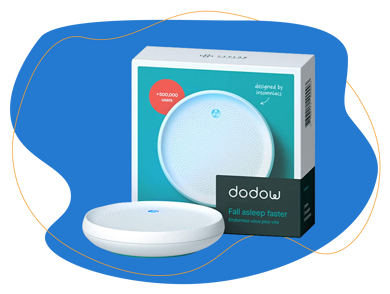



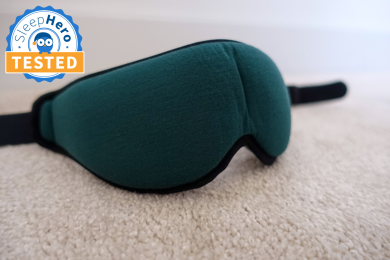



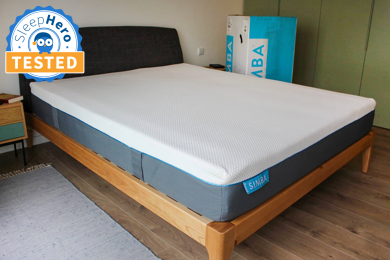



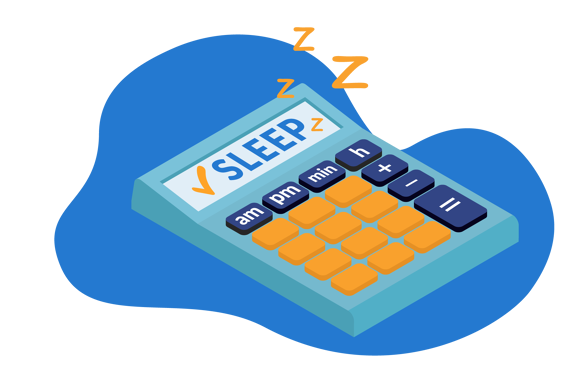
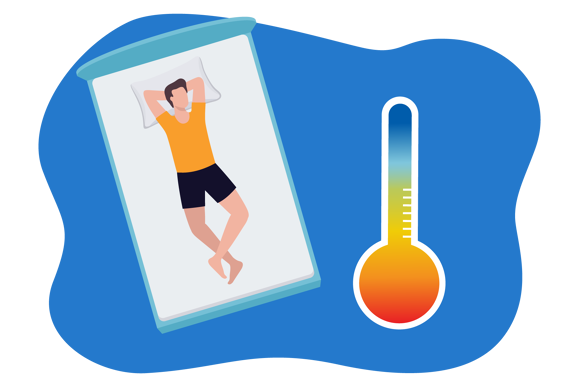
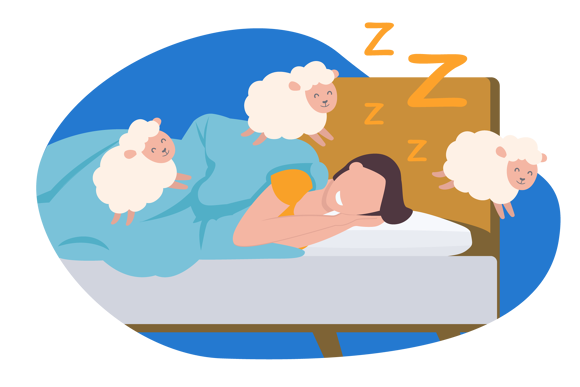


Alternatively, message us directly via the Contact Us page.